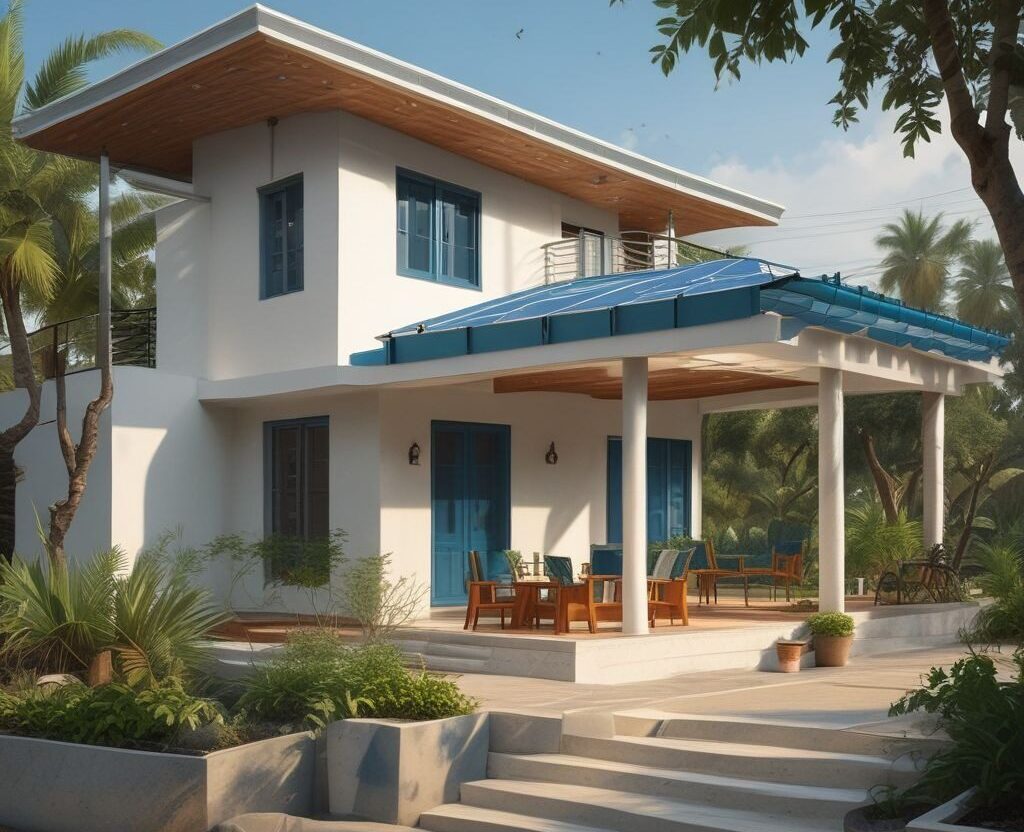In today’s world, the demand for sustainable living is more pressing than ever, and energy-efficient homes are quickly becoming the future of residential construction. These homes are designed to minimize energy consumption while providing long-term savings for homeowners and reducing their environmental footprint. With Kerala’s warm climate and growing urbanization, designing energy-efficient homes has become a critical component of modern construction. This blog explores the benefits of energy-efficient homes and provides insights into how they are built to meet both environmental and financial goals.
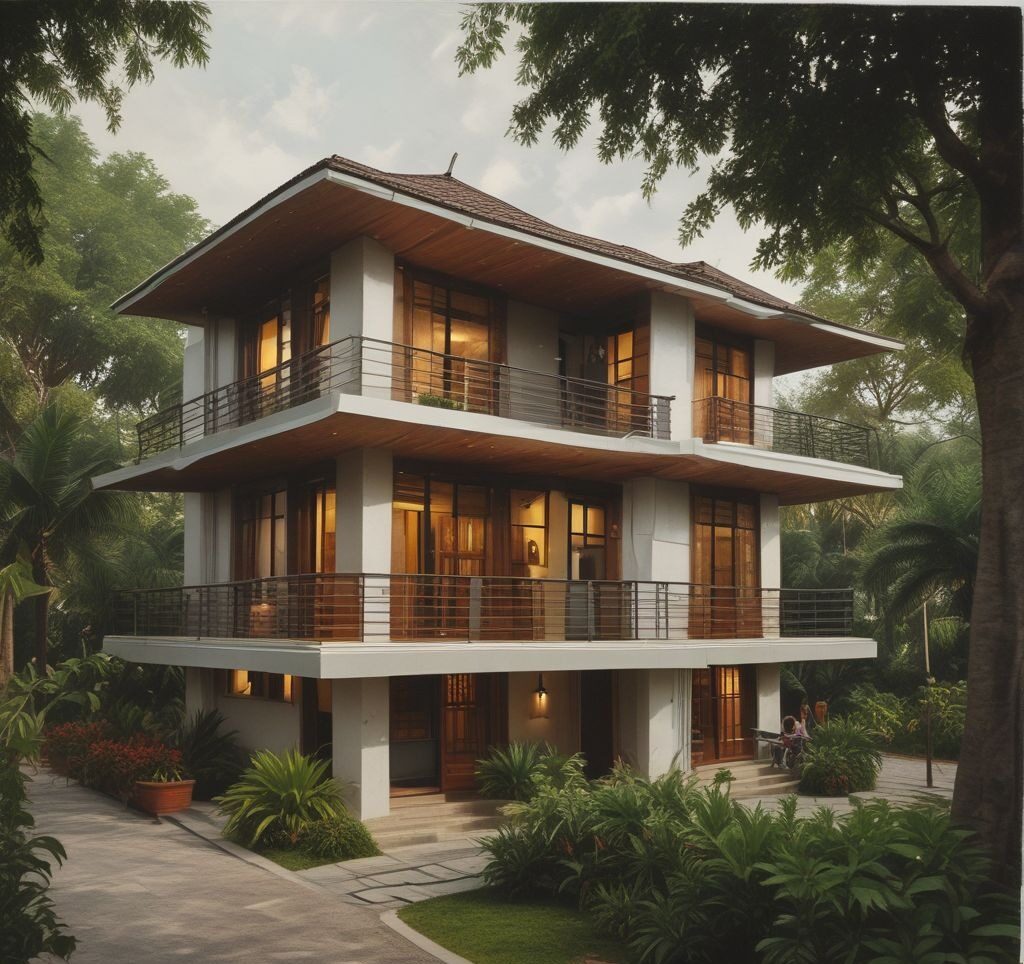
What Makes a Home Energy-Efficient?
Energy-efficient homes are designed with a range of features and technologies that work together to reduce energy usage while maintaining comfort. These features include high-performance insulation, advanced windows, energy-efficient appliances, and smart systems that optimize heating, cooling, and lighting. The goal is to create homes that are comfortable, cost-effective, and environmentally friendly.
Key Features of Energy-Efficient Homes
To achieve energy efficiency, modern homes incorporate several key design elements and technologies. Let’s explore some of the most important features:
1. High-Performance Insulation
Insulation plays a vital role in regulating the temperature inside a home, keeping it cooler in the summer and warmer in the winter. High-performance insulation reduces the need for heating and cooling, resulting in lower energy consumption. Properly insulated walls, roofs, and floors can prevent air leakage and improve the overall efficiency of the home.
Why It Works in Kerala:
- Kerala’s warm climate means homes are often subject to high temperatures. Insulating materials that reflect heat can help reduce the need for air conditioning.
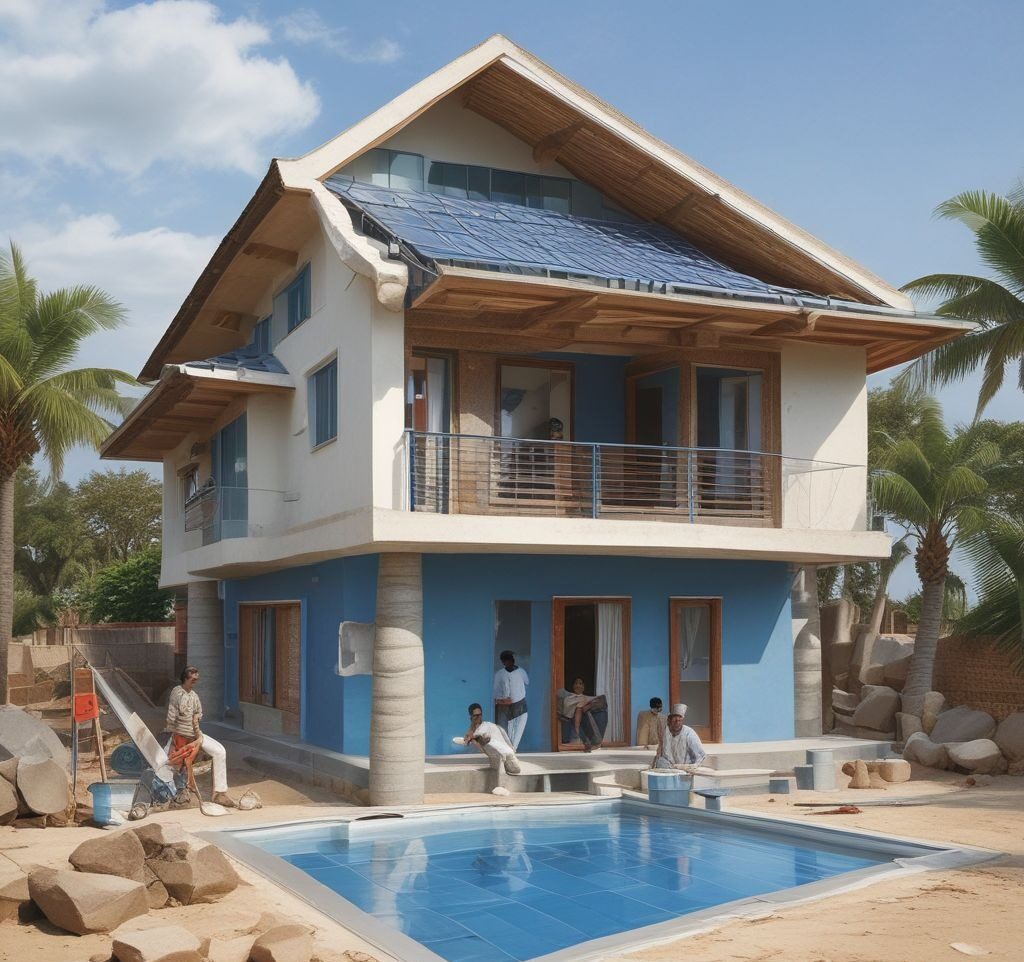
2. Energy-Efficient Windows and Doors
Energy-efficient windows and doors help reduce heat transfer between the interior and exterior of the home. Windows with double or triple glazing, low-E coatings, and insulated frames keep the heat out during the hot months and retain warmth during cooler periods. This not only makes the home more comfortable but also helps reduce energy costs.
Why It Works in Kerala:
- With Kerala’s intense sunlight, energy-efficient windows can significantly reduce the amount of heat entering the home, reducing the need for cooling systems.
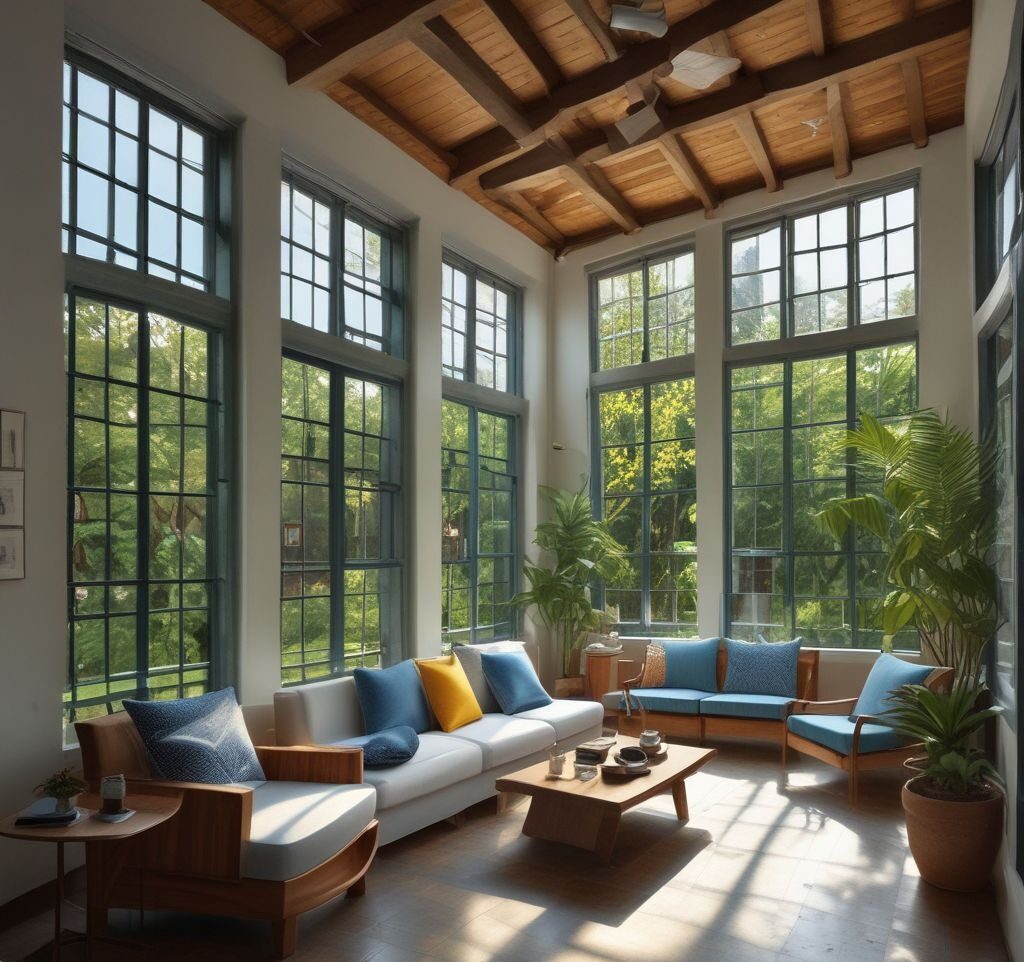
3. Smart Heating, Cooling, and Ventilation Systems
Energy-efficient homes are often equipped with smart systems that optimize heating, cooling, and ventilation. These systems can be programmed to adjust temperatures based on time of day, occupancy, or external weather conditions, ensuring that energy is used only when necessary. Smart thermostats, automated window blinds, and energy-efficient HVAC systems all contribute to creating a comfortable and energy-conscious home.
Why It Works in Kerala:
- Smart systems allow homeowners to regulate indoor temperatures without excessive energy use, which is crucial in Kerala’s climate, where air conditioning is often needed.
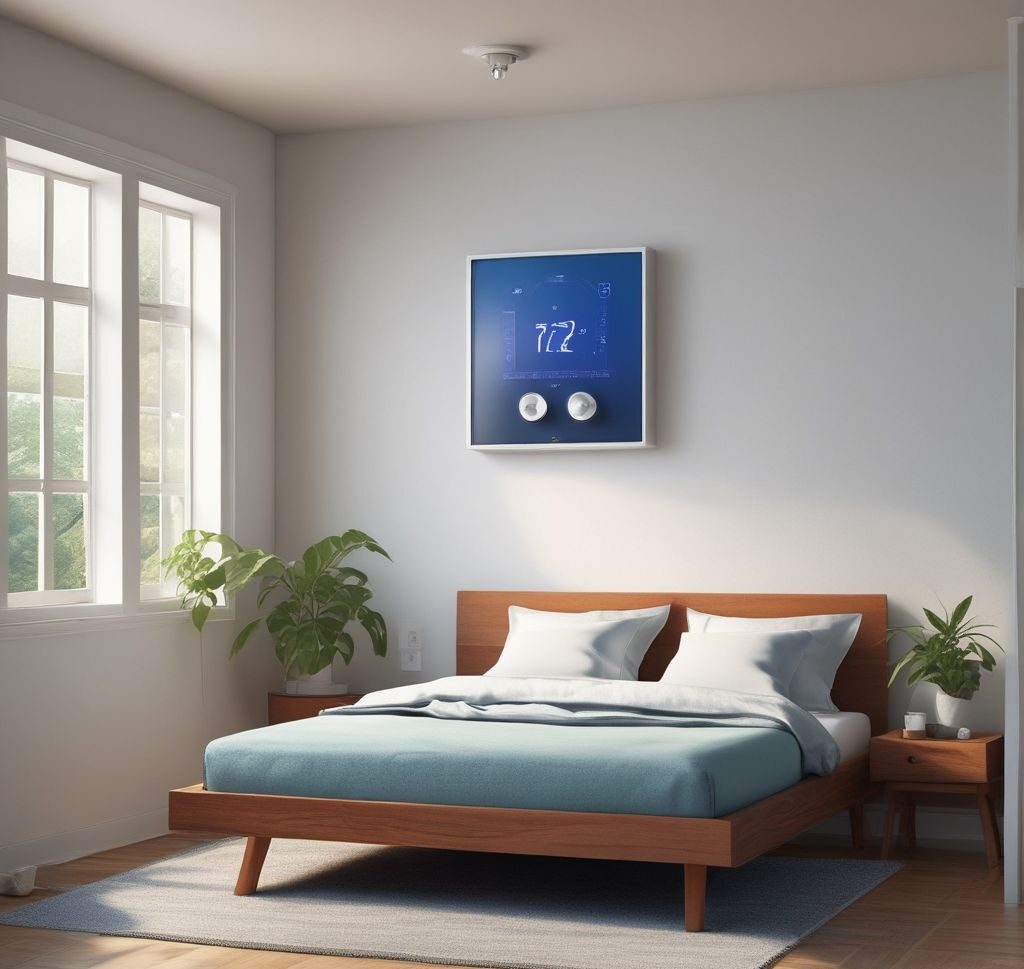
4. Solar Power Integration
Solar panels are one of the most effective ways to reduce a home’s reliance on traditional power sources. By harnessing the abundant sunlight in Kerala, solar power can generate electricity for the home, reducing or even eliminating energy bills. Additionally, integrating solar water heaters and solar-powered lighting systems further contributes to energy savings and a reduced carbon footprint.
Why It Works in Kerala:
- Kerala receives plenty of sunshine year-round, making solar power an ideal solution for sustainable energy in homes.
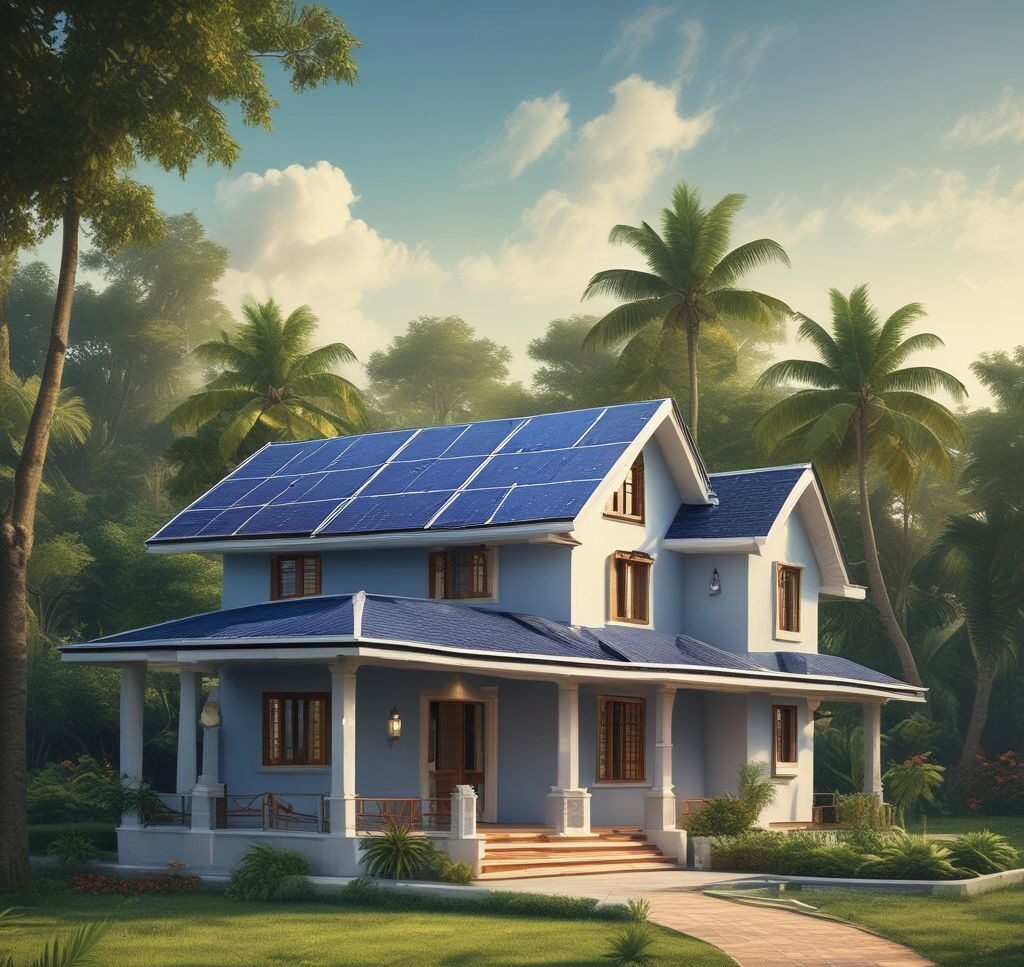
5. Energy-Efficient Lighting and Appliances
Energy-efficient lighting, such as LED bulbs, consumes significantly less electricity than traditional incandescent bulbs while providing the same amount of light. Similarly, energy-efficient appliances, such as refrigerators, washing machines, and air conditioners, are designed to perform optimally while using less energy. Installing these features ensures that the home consumes less electricity without compromising on comfort or convenience.
Why It Works in Kerala:
- In Kerala, where energy costs can be high, LED lighting and energy-efficient appliances help reduce electricity consumption and costs, especially during peak usage periods.
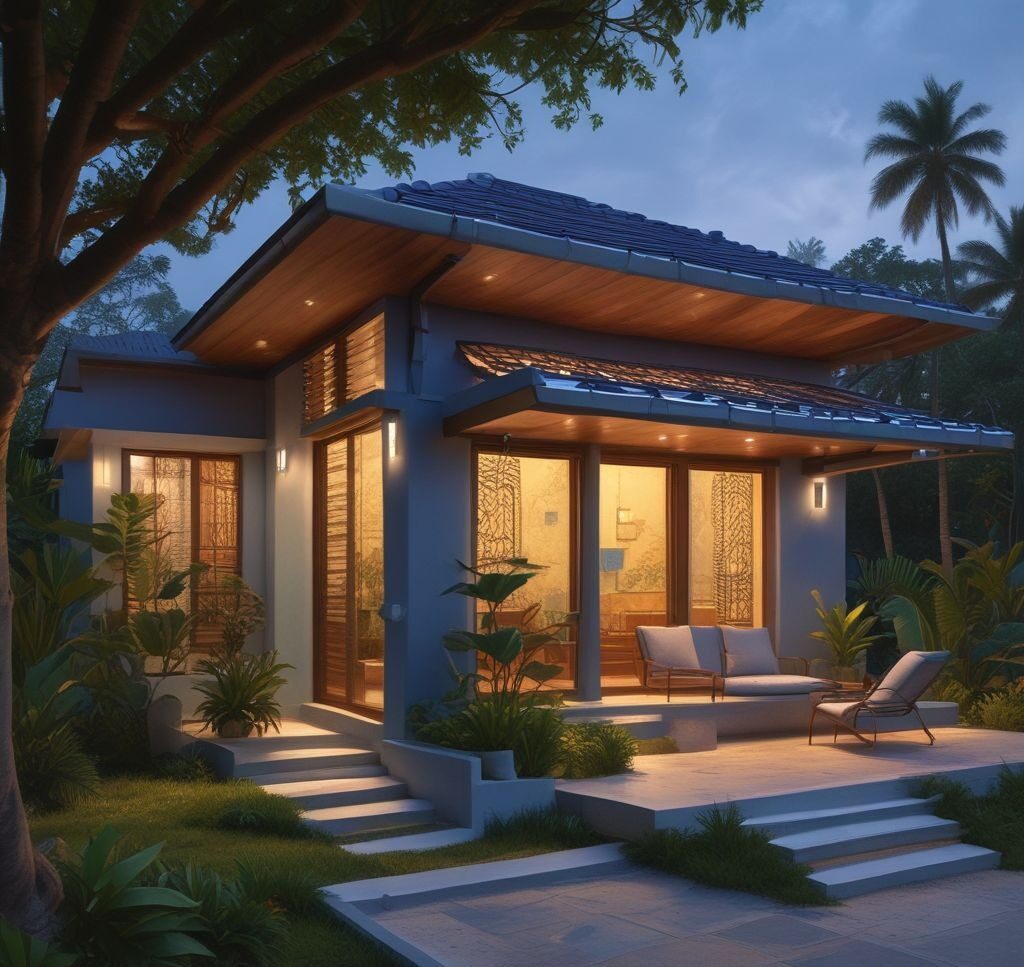
The Financial Benefits of Energy-Efficient Homes
One of the biggest advantages of energy-efficient homes is the long-term cost savings they offer homeowners. While the initial cost of incorporating energy-efficient technologies may be higher than traditional methods, the reduction in energy bills over time leads to significant savings. Additionally, many governments and local municipalities offer incentives and tax credits for homeowners who invest in energy-efficient upgrades, making it an even more attractive option.
Lower Energy Bills
Energy-efficient homes use less electricity, gas, and water, leading to reduced utility bills. The combination of solar power, smart systems, and high-performance insulation means that homeowners can save money every month while also reducing their impact on the environment.
Higher Property Value
Homes built with energy efficiency in mind often have a higher resale value. Buyers are increasingly looking for homes that offer sustainability features and lower operating costs. Energy-efficient homes are seen as more desirable in the real estate market, offering a competitive edge when it comes time to sell.
Increased Comfort and Health
Beyond the financial benefits, energy-efficient homes provide a more comfortable living environment. Consistent indoor temperatures, improved air quality through better ventilation, and the absence of drafts or cold spots contribute to healthier living conditions. These homes also reduce exposure to pollutants and allergens, enhancing the well-being of the occupants.
Designing Energy-Efficient Homes: Best Practices
For builders and homeowners alike, creating an energy-efficient home involves careful planning and attention to detail. Here are some best practices to keep in mind:
- Site Orientation: Positioning the home to take advantage of natural sunlight and wind patterns can significantly reduce the need for artificial heating and cooling.
- Sustainable Materials: Using locally sourced, sustainable materials like rammed earth or hemp concrete reduces the environmental impact of construction and provides excellent insulation properties.
- Energy Audits: Regular energy audits can help identify areas of improvement, ensuring the home continues to operate at peak efficiency.
- Passive Design Elements: Incorporating passive design strategies, such as natural ventilation, shaded windows, and roof overhangs, can further reduce energy consumption.
Conclusion: Energy-Efficient Homes as the Future of Construction
As the world moves towards more sustainable living, energy-efficient homes represent the future of construction. These homes not only offer significant financial savings for homeowners but also contribute to a greener, more sustainable future by reducing energy consumption and carbon emissions. In regions like Kerala, where climate conditions make energy use a major concern, building energy-efficient homes is not just a trend—it’s a necessity for long-term environmental and financial health.
Contact Us for Expert Budgeting and Project Management Consultation
Ensure your construction project stays on track financially from start to finish.
to learn more about our expert budgeting and project management services.
Bullswag
Builders India Pvt. Ltd.

